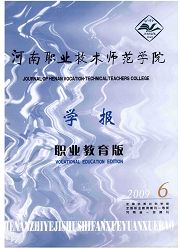
欢迎您!东篱公司
退出

 中文摘要:
中文摘要:
在评价无线传感器网络自身定位算法性能时,大多是基于理想的无线信号传播模式,从而导致测试结果与实际情况相差较大.针对这种情况,研究了WSN在实际环境下无线信号表现出的不规则特性及对自身定位过程的影响,并将RIM模型引入到算法测算的过程中.实验结果表明,信号的不规则特性对于定位算法的评价有着较为明显的影响.
 英文摘要:
英文摘要:
Nowadays function of self-localization algorithms of WSN is evaluated mostly based on the idealistic radio propagation model,which brings about the results much different from the practical ones.To solve this problem,this paper investigates and analyzes radio signal irregularity under the practical circumstances and its impact on the self-localization algorithms through introducing the RIM into the course of evaluation.The experimental results prove that radio irregularity has an obvious impact on the evaluation of localization algorithms.
 同期刊论文项目
同期刊论文项目
 同项目期刊论文
同项目期刊论文
 Hammerstein model identification using quantum delta-potential-well-based particle swarm optimisatio
Hammerstein model identification using quantum delta-potential-well-based particle swarm optimisatio Dynamic multi-objective cooperative optimization of biochemical process based on kinetic model and M
Dynamic multi-objective cooperative optimization of biochemical process based on kinetic model and M An Energy-Efficient Electrochemical Method for CuO–TiO2 Nanotube Array Preparation with Visible-Ligh
An Energy-Efficient Electrochemical Method for CuO–TiO2 Nanotube Array Preparation with Visible-Ligh 期刊信息
期刊信息
